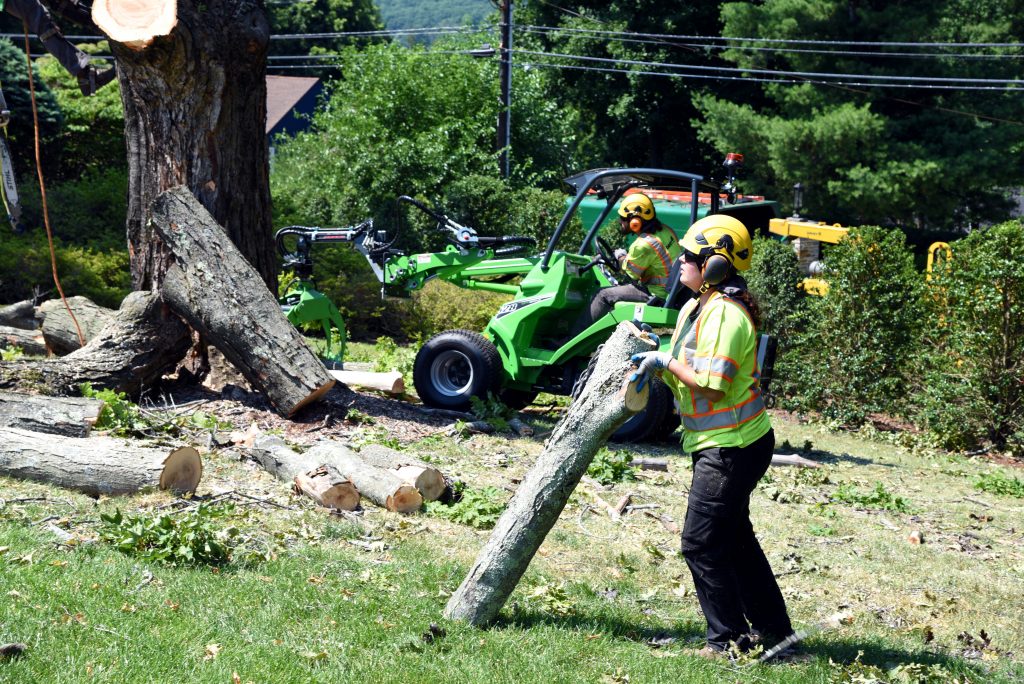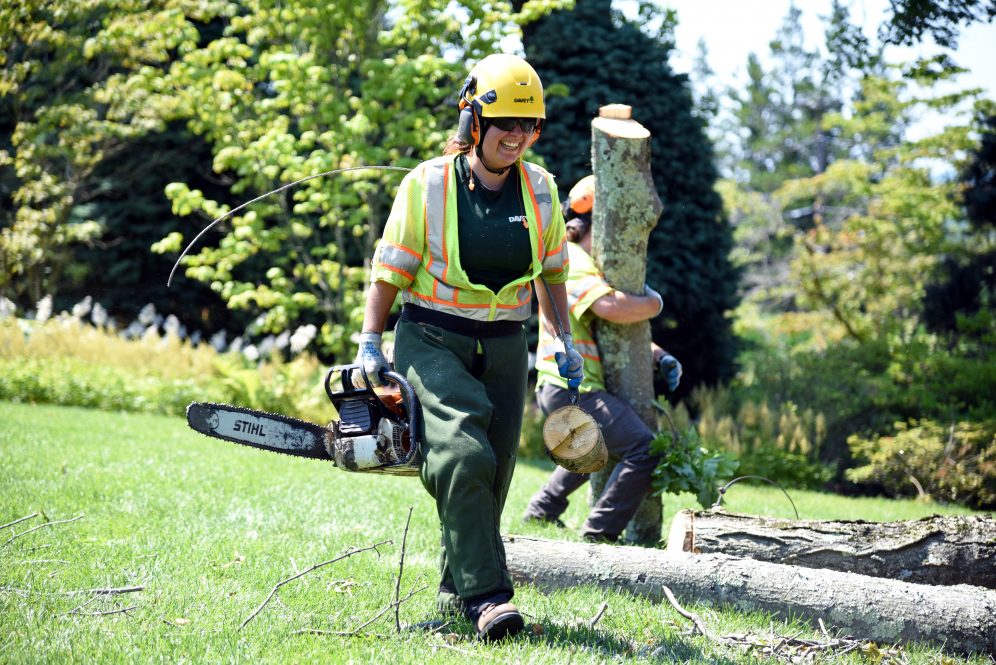This summer Alyssa Cleland is hanging out, but it’s not what you think. On any day, you might find Cleland scaling a tree, dozens of feet in the air. That’s because Cleland is spending the break from her coursework at UConn getting first-hand experience as a summer arborist with the Davey Tree Expert Company’s Hamden branch.
Cleland is a student in the Ratcliffe Hicks School of Agriculture (RHSA) in the Urban Forestry and Arboriculture Program. This internship is allowing her to put the knowledge she gains in the classroom into practice in a real-world setting.
So far, Cleland has helped cut down dead trees, trim branches, and even set up a mind-body garden at the Yale New Haven Hospital. She’s also learned the ins and outs of climbing, cutting, planting, and trimming trees around the state.
“Alyssa has been a strategic asset in outfitting our tree crews which helps enable us to keep up with client demand,” says Cameron Pierce, district manager and Cleland’s supervisor.
It’s going to be a little tough being a woman in the field. But it’s what I like to do, and trees are way less complicated than people.
Cleland says working with the Davey’s crew has taught her a lot about the day-to-day tasks an arborist is responsible for in a supportive environment, especially being the only woman in a male-dominated field.
“It’s nice to work in a company that respects its workers and with people who respect each other,” Cleland says. “It’s going to be a little tough being a woman in the field. But it’s what I like to do, and trees are way less complicated than people.”
Cleland’s class on tree identification has been a major help on the job. Having knowledge about various types of trees tells an arborist what disease or pest may be infecting it, which is critical when selecting the kind of pesticide or herbicide to use to target the problem without harming the tree.
“The more you understand the species, the more you can say ‘I know what kind of pests it gets so I know better how to fix it,” Cleland says.
Cleland says the emphasis that the College of Agriculture, Health and Natural Resources, the academic home of RHSA, puts on hands-on learning and a close community prepared her well to enter this internship with the knowledge and confidence to succeed.
“Professors push us to succeed, not to see us fail,” Cleland says. “They work with us to make it what we need. The professors know their stuff.”

John Kehoe, the adjunct professor of Cleland’s fundamentals of arboriculture class, encouraged her to apply for a Connecticut Tree Protective Association scholarship, which Cleland won.
“Having affirmation and validation from this group is a big deal for this course,” Cleland says. “[It] shows that out of all the people who applied, they thought I was best suited and has a future in this field. That was very exciting to realize. I wasn’t expecting it.”
This encouraged Cleland to apply for the internship with the Davey Tree Expert Company.
Cleland says this experience paired with her coursework in Ratcliffe Hicks is preparing her well to work as a licensed arborist after graduation, a profession that’s growing fast.
The demand for people who have a developed understanding of trees and how and where to cut or keep them is essential. While one of the most visible parts of the arborists’ job may be cutting down trees, a large part is also determining which trees to keep. This type of conservation can help cool an area with added shade or provide other ecological benefits, especially in the face of climate change.
“Urban forestry and arboriculture is one of the biggest growing fields in natural resources – there’s always jobs and it’s not just about rural communities,” Cleland says. “Everyone wants someone who knows trees, has a license, and is a plant specialist.”
Follow UConn CAHNR on social media.



